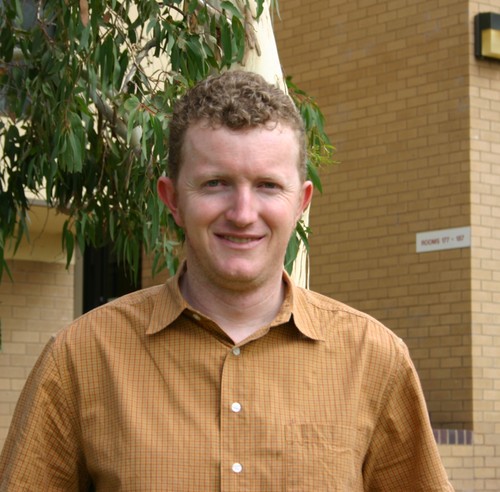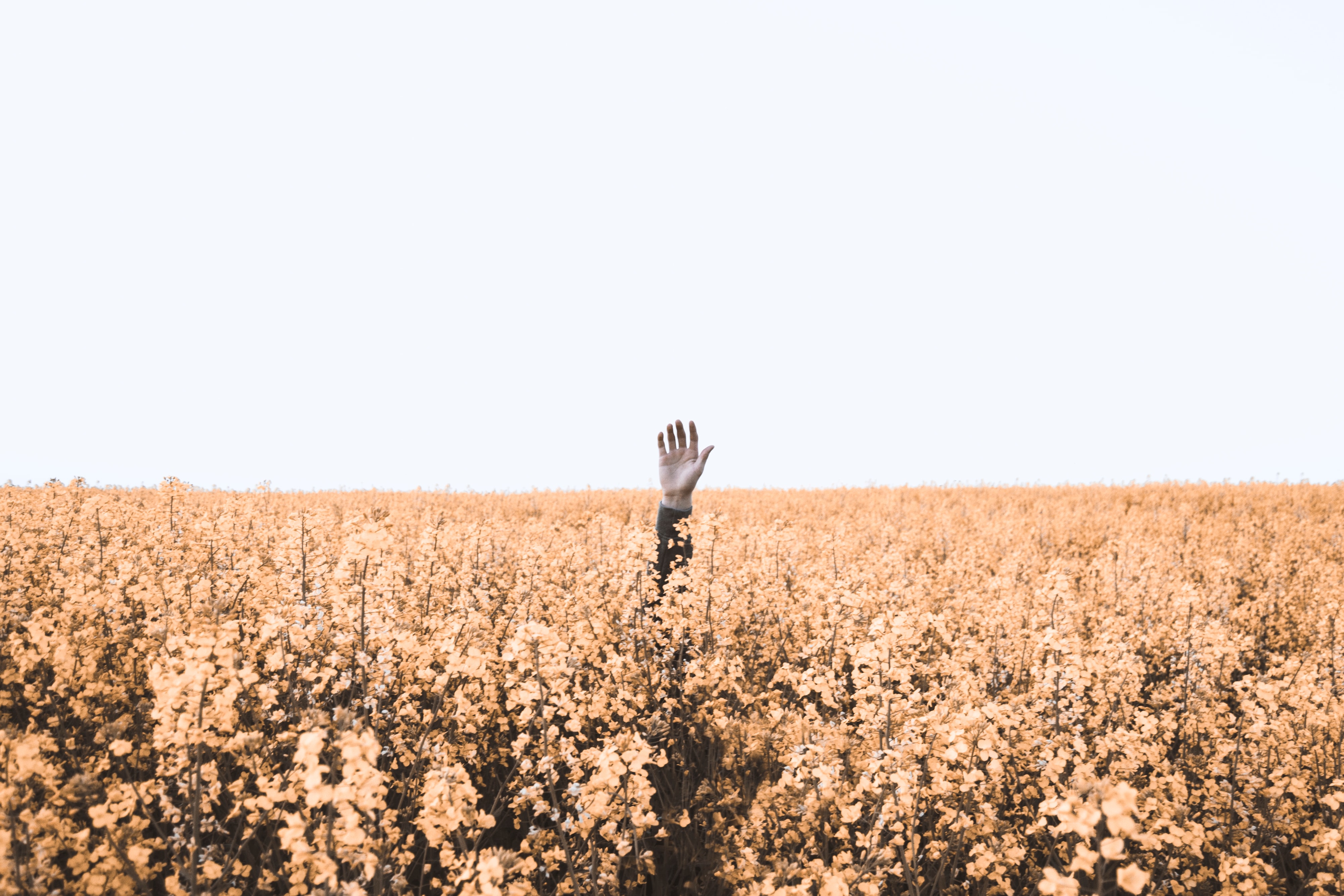Coping when anxiety takes over in a crisis can be very challenging and stressful. We spoke with Charles Sturt University’s Dr Gene Hodgins, who helped explained what anxiety is and shared his top tips for staying well.
What exactly is anxiety?
It’s your body’s natural response to a stressful situation. Dr Hodgins lists the elements of anxiety.
- The physiological component. Our heart rate increases and the blood flows to our extremities – that’s why we get flushed. We get jittery and our pupils dilate. This is a really important and perfectly natural response. It’s built into us as animals and is part of the readiness for our fight-or-flight response.
- The behavioural component. You may want to get angry, run away from the situation, or fight against it.
- The cognitive component. This is our thinking or ‘self-talk’. When we’re anxious we tend to focus on the stressor, and can become stuck thinking deeply over things that trouble us.
Is anxiety helpful or unhealthy?
A clinical psychologist, Dr Hodgins says it is natural for us all to feel some anxiety in a crisis.
“Anxiety is completely normal and everyone feels it. It’s also incredibly adaptive when it’s needed. In fact, we should feel it when there’s a proper trigger.
“The difficulties occur when anxiety levels becomes too much and you feel anxious all day, every day. Or when anxiety is triggered when it’s not needed. For example, when you’re about to sit an exam, a moderate level of anxiety is actually useful – it will get the blood pumping. But if you’re walking down the street and suddenly get anxious that you’re going to become ill, that’s not healthy. Nor is having a panic attack at home.
“In terms of mental health, we often refer to functioning as a guide to determine where people are at. If the anxiety is impacting upon your ability to function day to day, that’s usually when it’s an issue. For example, if you’re having trouble functioning at work or as a parent or partner and you can’t do the things you want to do.”
Living in exceptional times
A pandemic impacts upon people around the globe, with numerous and widespread anxiety triggers. Given we all find ourselves in similar, yet unfamiliar circumstances, there’s the possibility that more of us will experience elevated levels of anxiety in a crisis.
“This pandemic is not run-of-the-mill stuff. It’s unprecedented. These times are different to what most of us are used to living in and it will take time for us to adapt.

“I’m a big advocate of cutting ourselves some slack. Realise that a certain level of anxiety in a crisis is completely normal and totally expected. It’s okay to struggle with what’s happening. People should give themselves permission to feel that.”
Dr Gene Hodgins
5 tips for coping with anxiety in a crisis
1. Stay connected
“If you feel things are getting on top of you and it’s impacting your ability to function, the most important thing you can do is to talk to people. Talk to anyone you feel comfortable with, friends or family.
“Research tells us that social support is a buffering mechanism for anxiety and depression. We’re social animals who are built to talk, listen and tell stories. And there’s also a therapeutic benefit that comes from outwardly expressing your internal thoughts and feelings. Getting things out helps you put things into perspective.
“For most of us, venting will be enough to restore our equilibrium and put things in perspective. If that doesn’t work or you don’t have anyone to chat with, reach out to the health professionals.”
Quick question, Dr Hodgins. How do we maintain our social connections when we are practising social distancing?
“People are now trying to change that language. We’ve been talking about social distancing. We really should be referring to it as physical distancing. We absolutely need to abide by the physical distancing guidelines, but that doesn’t mean we can’t stay socially connected.”
Try video chats, a phone call or a text. Even old-fashioned letters are making a comeback!
2. Be aware of self-talk
Change the narrative in your head.
“Try to be aware of what you’re saying to yourself. Is it helpful talk? The way we think about things can often impact the way we feel about things. During times of major change, don’t fall into the trap of seeing things as black and white – perfect or horrible. And don’t catastrophise or over-emphasise the negatives.”
So, stay as rational and realistic as possible.
3. Be aware of what we can control
Life has changed substantially for most of us. There are lots of things that have been taken out of our control.
“In psychology we often speak about focusing energy on the things we can control. When we get anxious or depressed we put a lot of energy into things we can’t control. For example, getting angry that we can’t see or friends or family. Being upset that the government is or isn’t doing something. Getting cranky that some people still visit beaches, though they shouldn’t.
“Again, everything in moderation. Some of those feelings are normal. But if you’re expending a lot of energy on something you can’t control, that’s energy wasted.
“I’m certainly not saying it’s always easy, but try to concentrate on the things you can control. Spend your time and effort on the things you can do something about.”
4. Look after yourself
You’ve heard it before, but we’ll say it again because it’s crucial to our physical and emotional wellbeing. Eat well, exercise regularly and get enough sleep. The fourth valuable tool we should use is relaxation and mindfulness.
“We can all practice relaxation and mindfulness. Just remember relaxation means different things to different people. It may be listening to music, gardening, muscle relaxation techniques or imagery with a CD. I’ve had clients who listen to heavy metal music.
“Mindfulness has been around for a long time, but has become popular in the last few years. Essentially, the two key elements of mindfulness are deliberately being in the present and practising acceptance. Concentrating on what you can see, hear and feel.
“Our brains often think about the past or the future – and that’s when we can start to get anxious. Concentrating on the moment can push out our other thoughts. And mindfulness doesn’t have to be amazing, you can practice it with whatever you’re doing.”
Instead of focussing on the past or worrying about the future, appreciate and accept the now!
5. Be patient – and grateful
We’re all at home together, much more than usual, and things may become strained.
“Even if we have the most amazing family and relationships, we’re not used to being with them 24/7. It’s totally natural to have times when you’ll get cranky and get on each other’s nerves. We just need to remember not to catastrophise those moments.
“Build in breaks and take some time out. Head to the backyard, go for a walk or find your own space to read.
“Try to find things to be grateful for, or opportunities to explore, despite the enormous and difficult change we are all experiencing. Are you able to spend more quality time with kids, partners or pets? Can you use this time to build skills you wouldn’t otherwise have done?”
Remember to roster in some alone time and think about creating a family gratitude diary.
Want some more valuable information? Watch as Dr Gene talks us through other tips.
Create a world worth living in
What does a better world look like to you? Does it mean looking after people’s mental health during tough times? Our psychology courses can help you help others.


You must be logged in to post a comment.